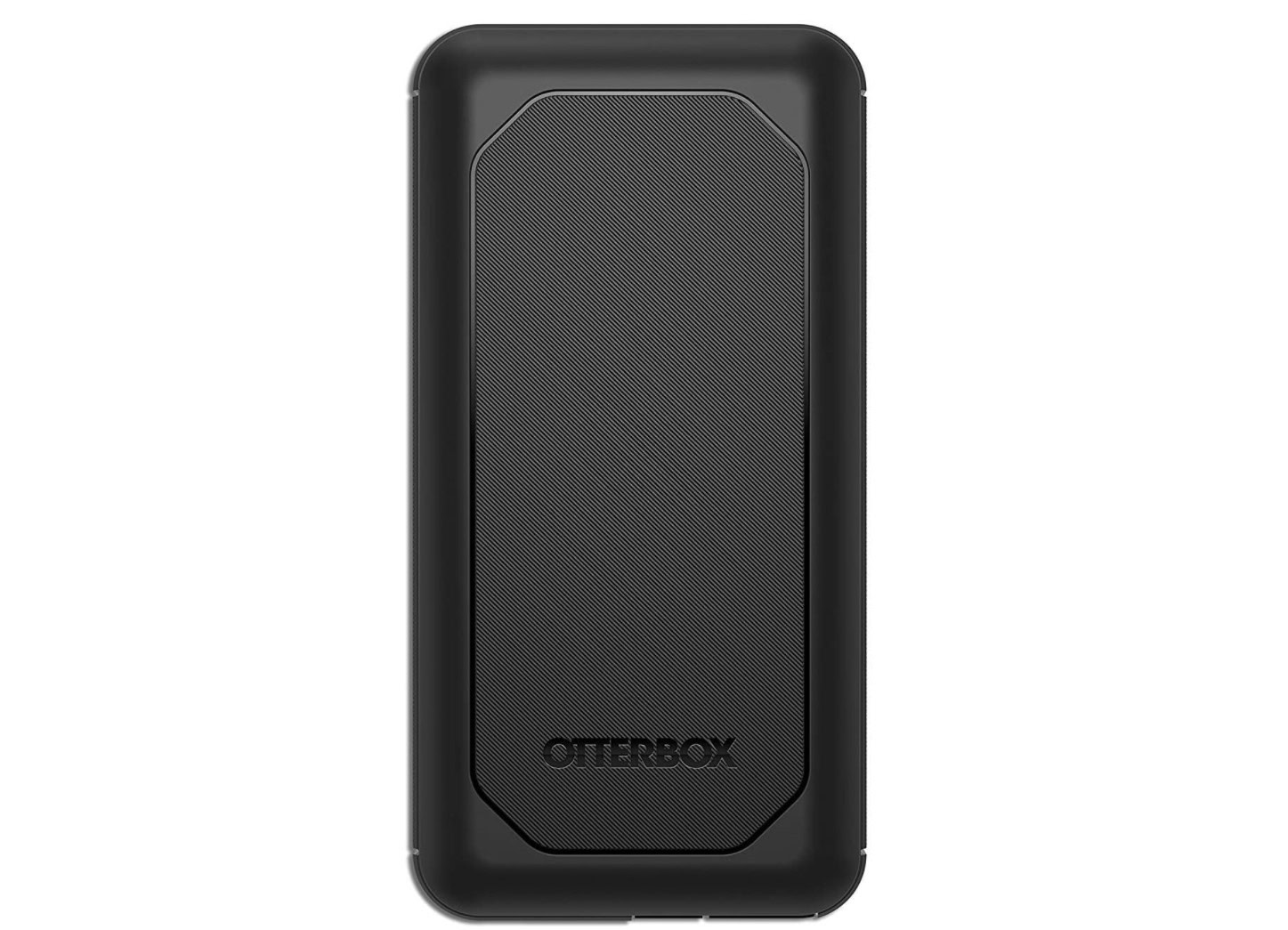Affiliate links on Android Authority may earn us a commission. Learn more.
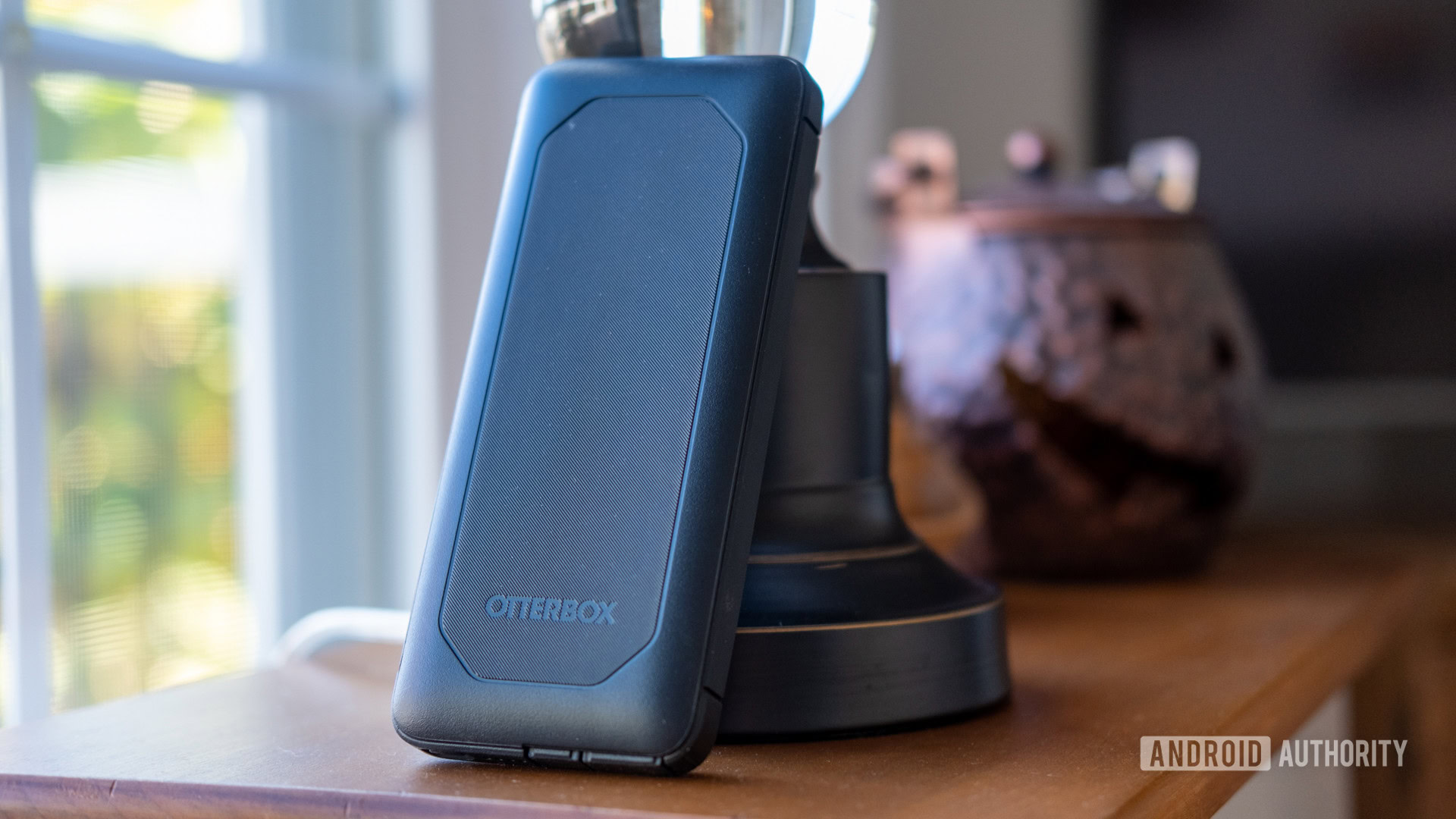

Otterbox Wireless Power Pack review: Adventure ready, but heavy
Published onNovember 13, 2021

Otterbox Wireless Power Pack
MSRP:
What we like
What we don't like

Otterbox Wireless Power Pack
The name Otterbox conjures up a very specific set of products for most people. After all, the company is known for its often-bulky, durable phone cases. Now, Otterbox has spread into a few new categories, including charging accessories. How well can a power bank with the company’s classic durability perform? Find out in our Otterbox Wireless Power Pack review.
What you need to know about the Otterbox Wireless Power Pack
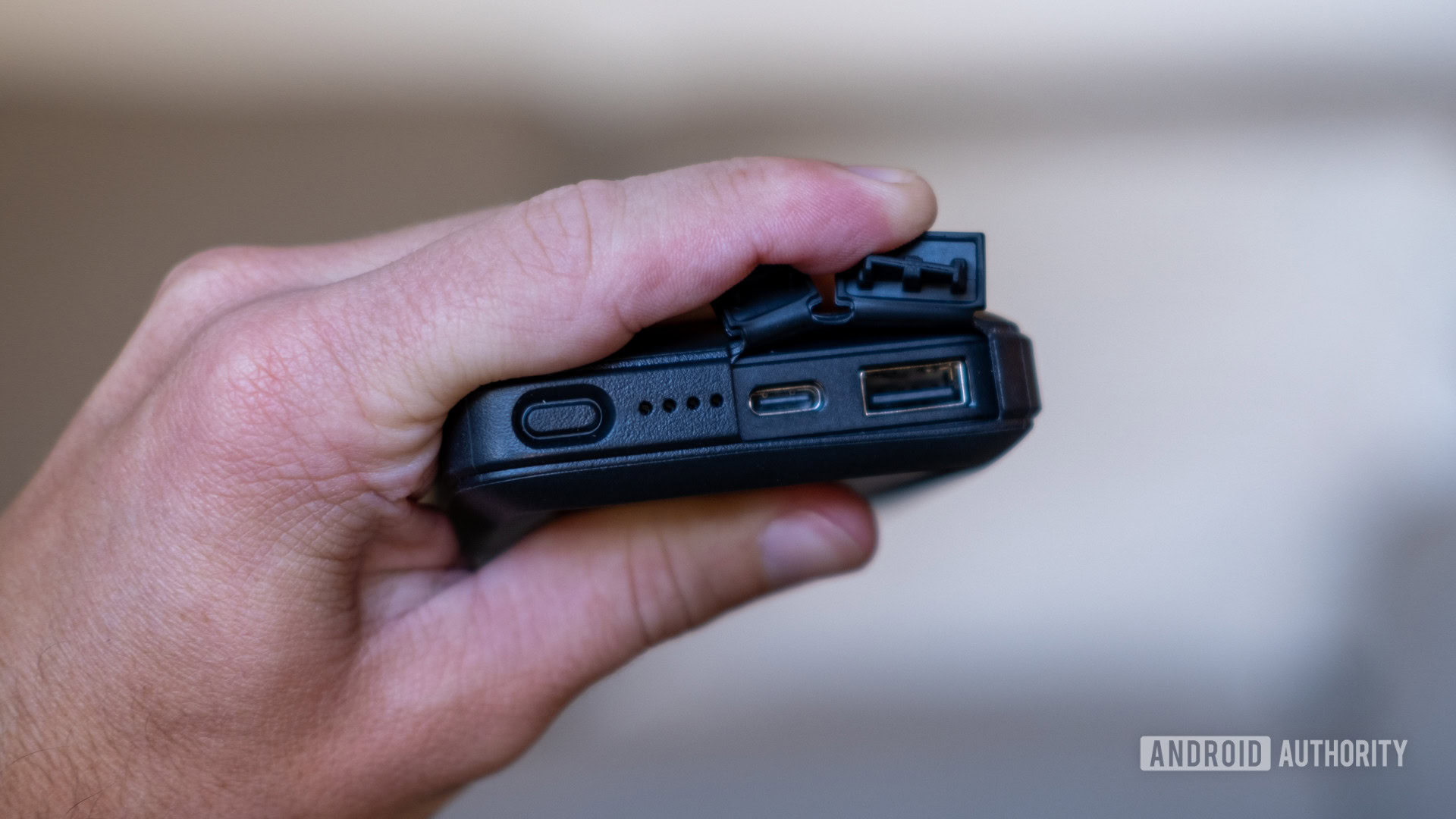
- Otterbox Wireless Power Pack (10,000mAh): $39 / €49
This Otterbox Wireless Power Pack is one of the older charging accessories in the company’s lineup. It carries a 10,000mAh capacity and packs an 18W USB-C port next to a 12W USB-A port. It splits that 18W between both ports when charging multiple devices, with the USB-C taking the bulk of the energy.
The power bank also features a 5W Qi wireless charging pad on the textured top panel. Otterbox added four white LEDs and a rubber button to check the remaining charge, too.
The Wireless Power Pack sports a durable rubber-coated plastic design with an adventure-ready IP54 rating.
Otterbox adopted its classic rugged design for the Wireless Power Pack, with a matte black plastic build and a thick rubber coating. The rubber is textured on the top panel to keep your devices in place while wirelessly charging. Both ports are also covered by thick flaps reminiscent of those on Otterbox cases. The power bank itself measures 152.4mm long by 76.2mm wide by 16mm thick and weighs 321.5g.
The Otterbox Wireless Power Pack is one of the more adventure-ready power banks on the market, with an IP54 rating for dust and splashes. It’s tested for drops up to two meters as well, though it’s best not to test those limits. There’s not much to mention in the box — just a Quick Start Guide and a USB-A to USB-C cable.
Learn more: Here’s how fast charging really works
What’s good?
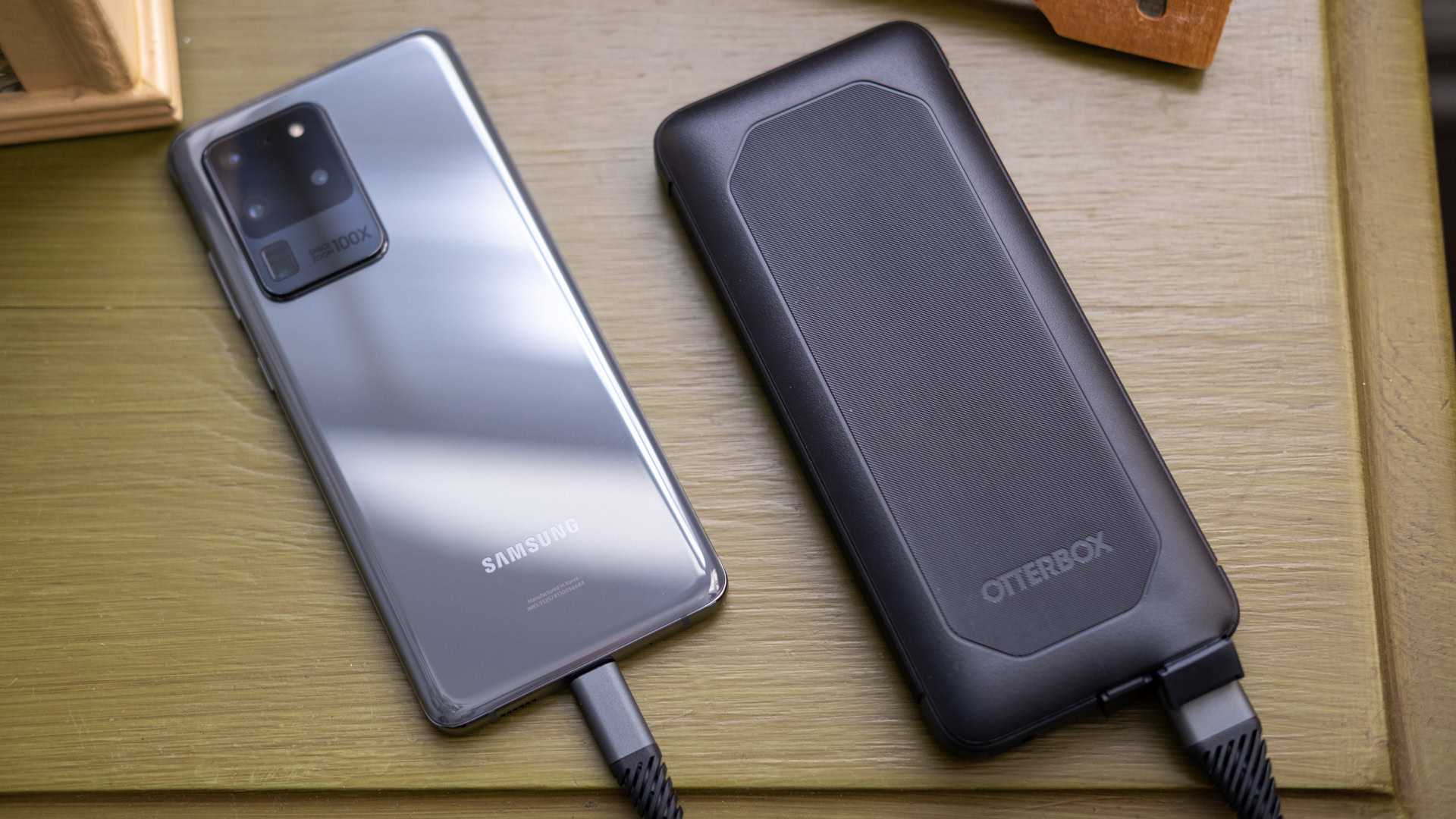
It’s not always easy to find a power bank ready for outdoor adventures. Sure, there are plenty designed for travel, but the Otterbox Wireless Power Pack is the first I’ve tested with rubber port covers and an IP rating. While I haven’t put it through too many environmental hazards, it’s become a reliable companion whenever the weather forecast looks dicey.
The 18W Power Delivery is reliable on most recent phones and accessories.
Otterbox packed its USB-C port with 18W wired charging, and I found that it delivers top speeds just about all the time. A Samsung Galaxy S21 hit 14.7W Power Delivery speeds reliably, and an iPhone 12 Pro pushed 17.3W. It’s not surprising to see such a difference, as the Galaxy S21 tops out at 15W without USB PD PPS. I also achieved speeds of 17.47W on a Microsoft Surface Laptop 3 with the same port.
| Otterbox Wireless Power Pack Test | Samsung Galaxy S21 | Apple iPhone 12 Pro | Microsoft Surface Laptop 3 |
|---|---|---|---|
| Otterbox Wireless Power Pack Test USB-C port | Samsung Galaxy S21 9.09V 1.62A 14.7W Standard: USB PD | Apple iPhone 12 Pro 9.05V 1.91A 17.3W Standard: USB PD | Microsoft Surface Laptop 3 12.13V 1.44A 17.47W Standard: USB PD |
| Otterbox Wireless Power Pack Test USB-A port | Samsung Galaxy S21 5.09V 1.53A 7.8W Standard: Quick Charge | Apple iPhone 12 Pro 4.93V 2.33A 11.5W Standard: APPLE | Microsoft Surface Laptop 3 N/A |
Outside of the 18W Power Delivery, the Otterbox Wireless Power Pack offers Quick Charge 3.0 and 2.0 support as well as Apple 2.4A from both ports. I also used the Otterbox 10-foot USB-A to USB-C cable in my testing, as seen above. It’s rated for 10,000 flexes with a braided nylon cable.
What’s not so good?
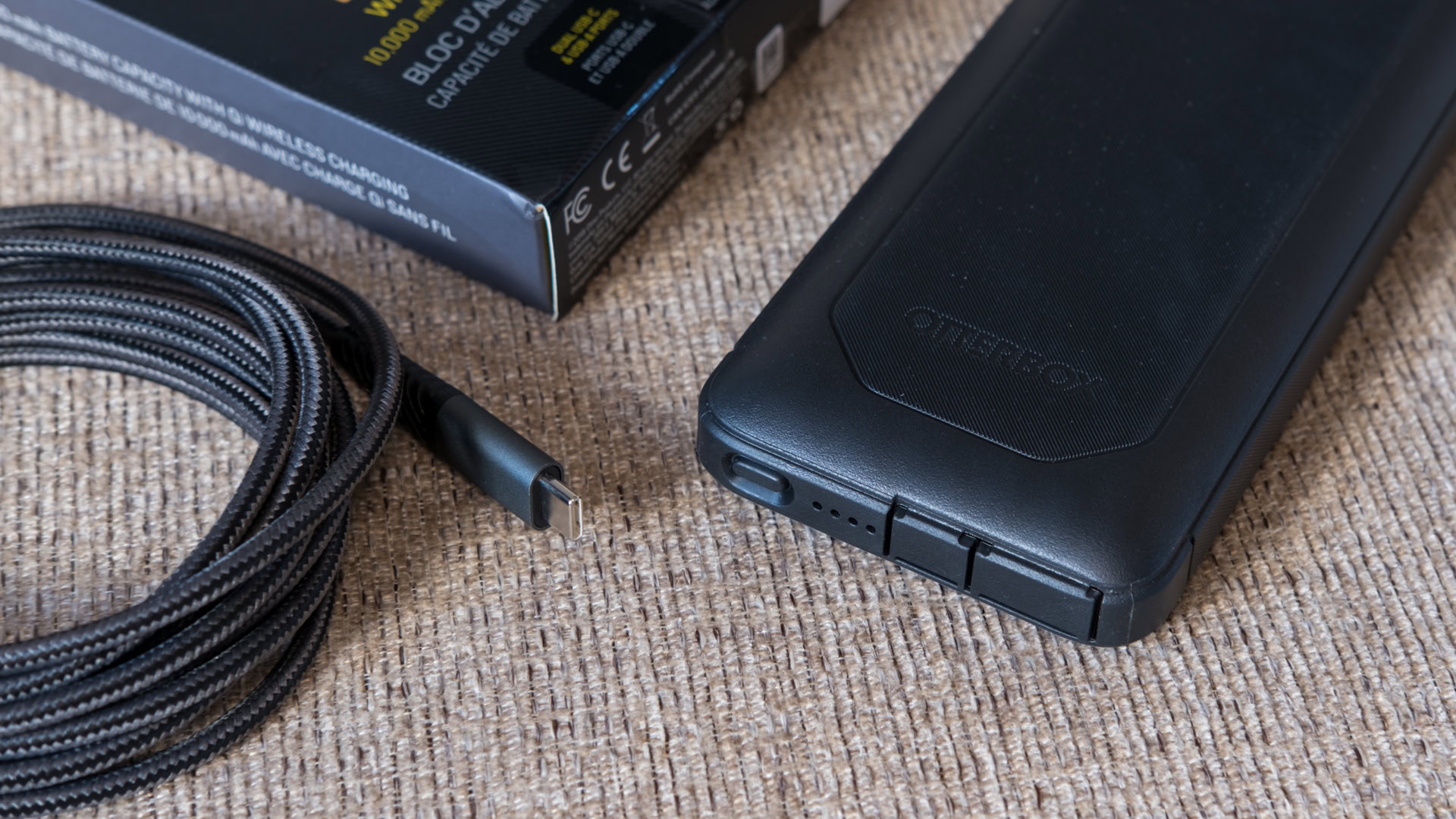
Otterbox’s durable approach comes at a cost — this power bank is huge. It’s about the same height and width as a Samsung Galaxy S20 Ultra and weighs more than any other power bank I have tested. Much of this weight is likely down to the dense rubber shell, but it makes the Wireless Power Pack harder to slip into a pocket.
The rubber construction is big, heavy, and makes it hard to find the wireless charging pad.
My other issue with the design is that there is no indication of where the wireless charging pad is. Many wireless charging banks will have a lightning bolt or some other way to identify the Qi pad — but not this one. You just have to set your device on the textured rubber and hope it’s correct. While this is fine for large devices like phones, it can be trickier for watches and earbuds.
The wireless pad also tops out at just 5W, which is significantly slower than most 10W options. As with many power banks, 18W isn’t enough to reliably charge a full-size laptop. That said, you’ll want a higher capacity power bank if you want to charge laptops and larger devices — stick to tablets, phones, and other small accessories for 10,000mAh banks like these.
See also: The best wireless chargers to buy
Otterbox Wireless Power Pack review: Should I buy it?
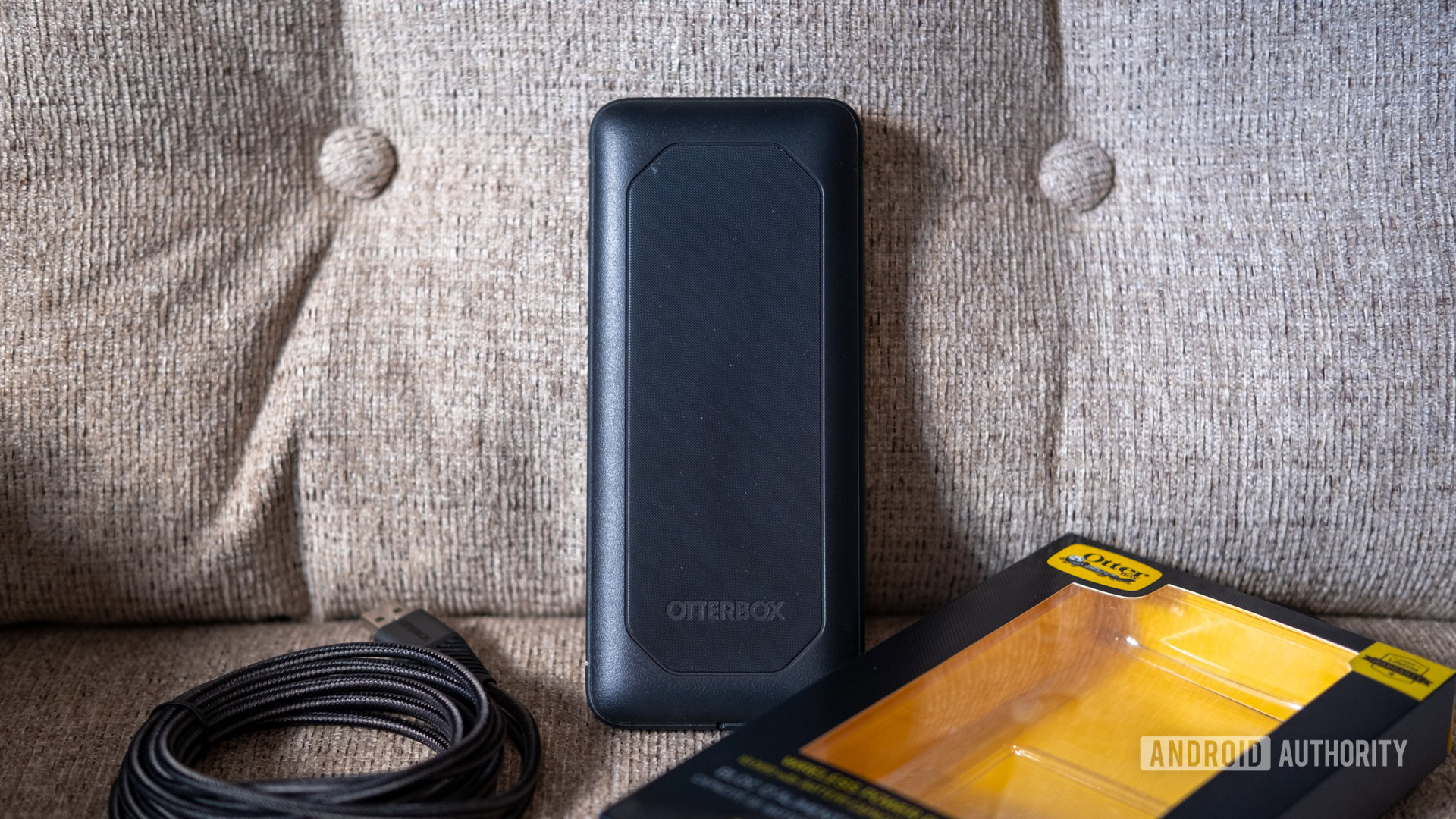
If you want a power bank that’s built for adventure, the Otterbox Wireless Power Pack is just about perfect. The IP54 rating means it can handle inclement weather without too much fuss. You shouldn’t have too many problems relying on 18W Power Delivery from the USB-C port, even if it’s not suitable for modern flagships like the Galaxy S21 and Pixel 6 series’ that require USB PD PPS. Just make sure that you’re ready for the added size and weight of this heavy-duty beast.
Should you decide that you want a smaller, lighter 10,000mAh power bank, there are heaps of options to choose from. The Anker PowerCore III Wireless ($49) packs similar Power Delivery speeds with an easy-to-spot Qi wireless pad. You can also check out Samsung’s 25W Wireless Portable Battery ($79). It’s certainly expensive, but the premium metal construction will last a long time and it’s one of few power banks with USB PD PPS support. There’s also Otterbox’s Folding Wireless Power Bank ($59), which loses some of the ruggedness, but gains a handy fold-out kickstand so you can game or watch movies on your phone while it charges on the wireless pad.
